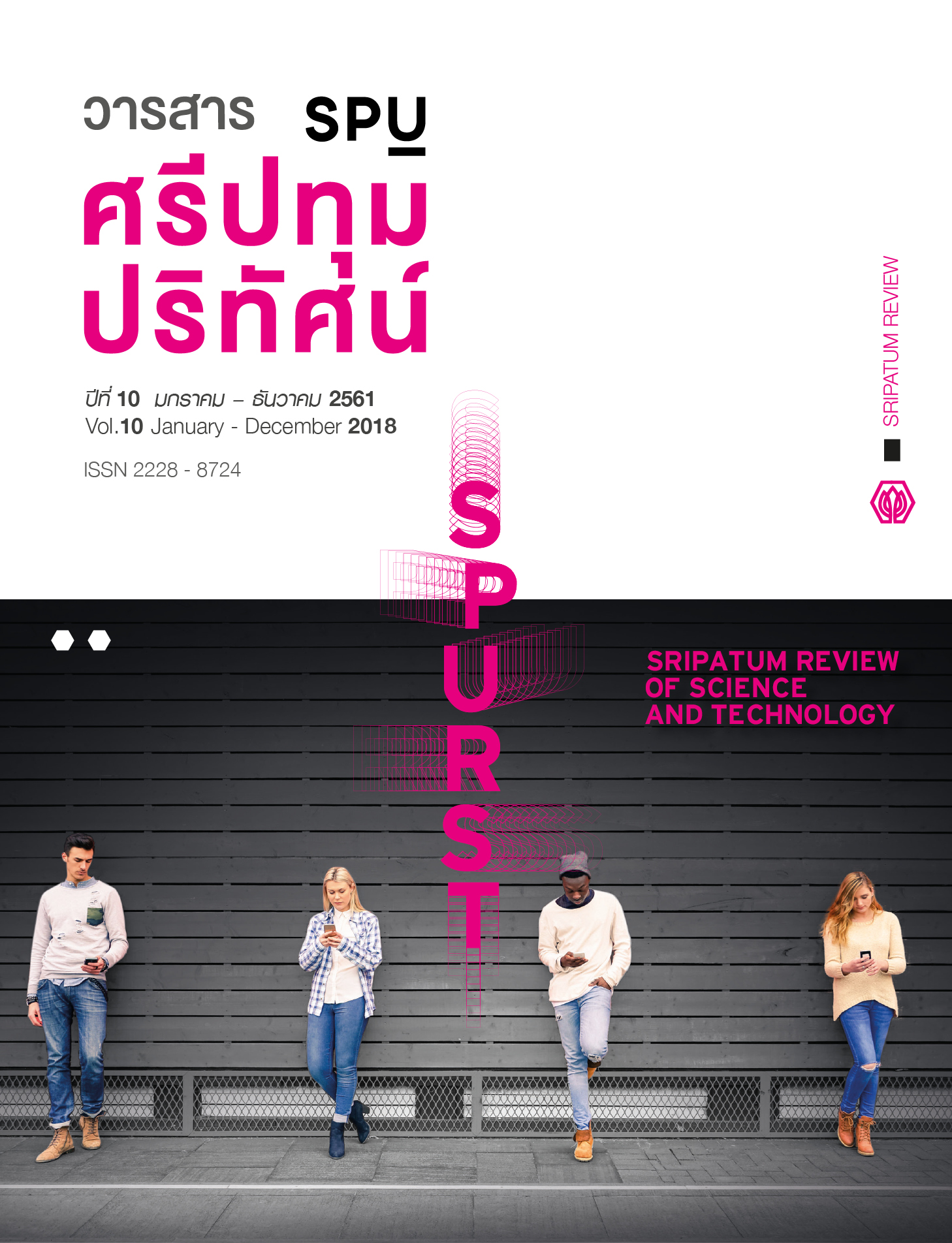Knowledge management in construction project by social media: facebook application
Main Article Content
Abstract
Construction management consultant is the professional firm acknowledged as the organization of knowledge, which means the professional practice related with the application of knowledge to solve problems until work completion to achieve the objectives of the project. In the work performance process of construction management consultant, there is a clear practice process that is acknowledged as the process comprising the body of knowledge. However, the construction work has its own context which is an obstacle for knowledge management of the organization concretely. Major factors of construction management process are the personnel and report documents. This approach is applied for further study of the example project. From the theory of transforming tacit knowledge, which is the personal knowledge, into explicit knowledge in order to deliver the body of knowledge to other people, the tacit knowledge is an important asset that can be applied to benefit the organization. However, there must be an appropriate knowledge management. The main factor in the knowledge management approach is the report documents. As such, electronic recording is a tool to facilitate the organization in management, filing and sharing the body of knowledge to the outside circles. Therefore, this article presents a case study of applying Facebook as the social network for knowledge management.
Article Details
References
Dataware Technologies. (1998). Knowledge management linking people to knowledge for bottom line results. Cambridge: Corporate Executive Briefing.
Drucker, P. (1969). The Age of Discontinuity. London: Heinemann.
Drucker, P. (1988). Management and the World’s Work. Harvard Business Review, 66(1), 65-76.
Drucker, P. (1993). Post-Capital Society. Oxford: Butterworth Heinemann.
Drucker, P. (1994). The age of social transformation. New York: Atlantic Monthly.
Fong, P. (2003). Knowledge creation in multidisciplinary project teams: an empirical study of the processes and their dynamic interrelationships. International Journal of Project Management, 21, 479-486.
Haridimos, T. (2005). Complex Knowledge: Studies in Organizational Epistemology. Oxford: Oxford University Press.
Jackson, P. and Klobas, J. (2008). Building knowledge in projects: A practical application of social constructivism to information systems development. International Journal of Project Management, 26, 329-337.
Lorsuwanarat, T. (2005). Knowledge organization: From concept to practice. Bangkok: NIDA. (in Thai)
Mark, S.A., Volkmar, P. & Volker, W. (2002). Sharing expertise beyond knowledge management. London: The MIT Press Cambridge.
Masuda, Y. (1980). The informational society as post-industrial society. Tokyo: Institute for the Information Society.
Naisbitt, J. (1982). Megatrends: Ten New Directions Transforming Our Lives. New York: Warner Books.
Nonaka, I. and Takeuchi, H. (1995). The Knowledge-Creation Company. New York: Oxford University Press.
OECD. (1999). Inclusive Education at Work. Paris: OECD Publishing, ISBN:9789264180383
Porter, M. (1990). The Competitive Advantage of Nations. New York: Free Press.
Project Management Institute. (2000). A guide to the project management body of knowledge, pp.20 (CD-ROM). Abstract from PMBOK@ Guide, 2000 edition, ISBN: 1-880410-25-7.
Thai Consultant Database. (2015). Consultant database. Retrieved November 15, 2015, from: https:// www.consultant.pdmo.go.th/ (in Thai)
Zack, M.H. (1999). Developing a Knowledge Strategy, California Management Review, 41(3), 125-145.

